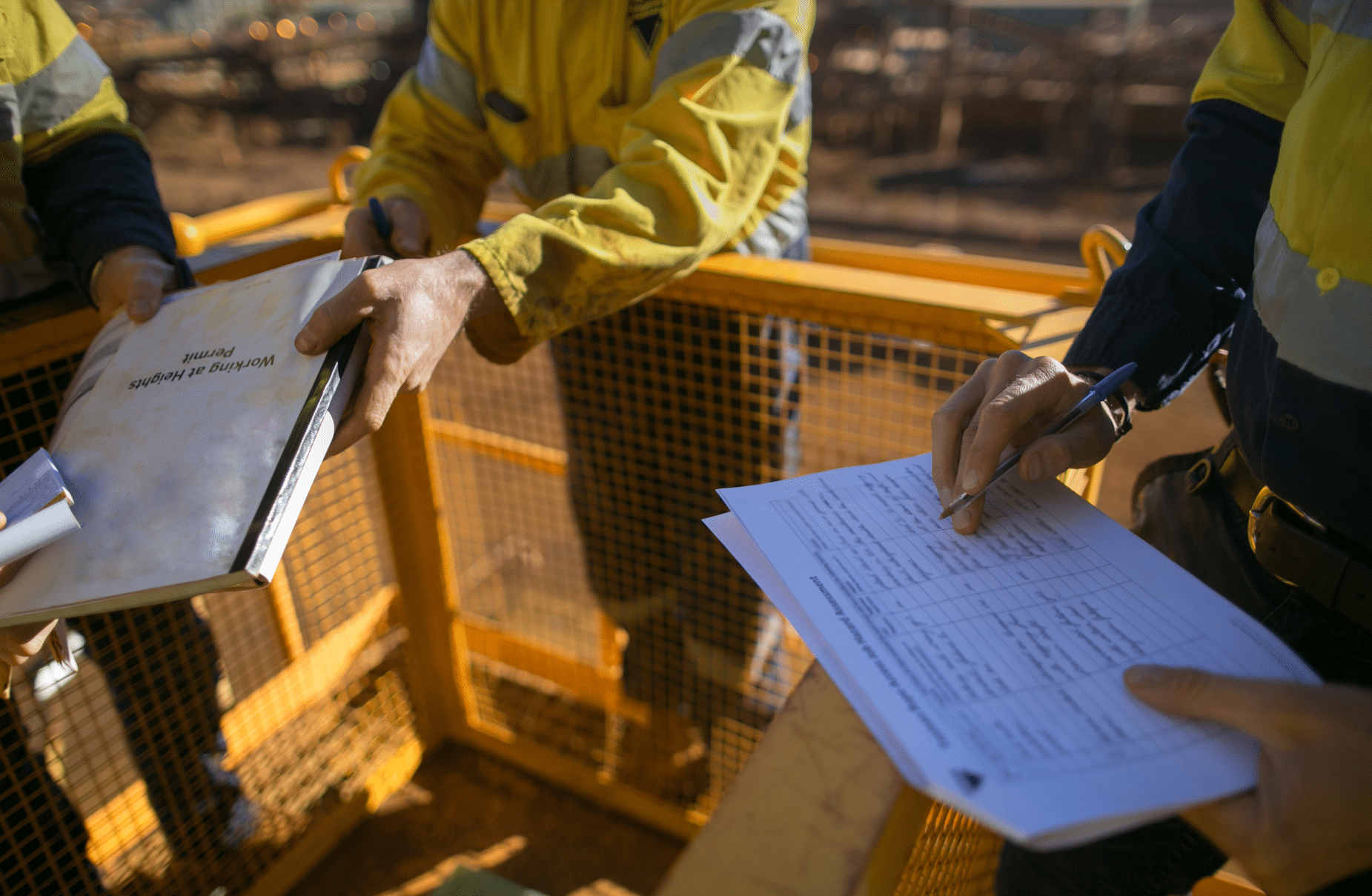Accidents at work can bring a lot of uncertainty along with the pain and trauma of your injuries.
If you are thinking about making a personal injury claim after an accident, that uncertainty can be heightened – especially if you’ve never made a personal injury claim before.
So to help ease some of that doubt and trepidation, we’ve put together a list of 10 key things you should know about accident at work claims. And hopefully, with these pointers, you can feel much more positive about going through with your claim and approaching a firm of specialist personal injury solicitors (like Truth Legal!) to help you.
1. Your claim is never more important than your health
Any list of advice about personal injury claims should include this important caveat.
Recovering compensation can be an enormous help after a workplace accident, but making that claim, or taking steps to support it, should never be allowed to interfere with your well-being.
Fortunately, situations in which you may need to choose between your health and your claim are quite rare, and pursuing a claim may actually be beneficial to your health in some circumstances (see Point 2 below).
Personal injury claims can be stressful. But instructing the right personal injury lawyers to assist you in your claim can help with reducing this stress as far as possible (more on this at Point 10).
Even so, always be mindful of this first key point as your claim goes on. And as you read through the rest of this list, remember that your health should take priority over anything else which is recommended here.
2. Your claim can help you with access to rehabilitation
If our first point introduced any fresh doubts, hopefully this second one will serve to counteract them.
A key benefit of making a personal injury claim is that it can help with your recovery due to improving access to rehabilitation.
Rehabilitation, which includes treatments such as physiotherapy, chiropractic treatment, counselling, or Cognitive Behavioural Therapy (CBT), can often be difficult to obtain quickly through the NHS. When you make a personal injury claim however, it is often possible for your solicitors to instruct a medical agency to arrange this treatment for you (provided it has been recommended by a medical expert).
The treatment will be carried out through private practitioners – thereby avoiding NHS waiting lists – but instead of you having to pay the costs yourself, these will be claimed from the other side. This will be on top of the amounts you are claiming for injuries and losses, and will be paid to the medical agency once your claim is completed.
3. You can claim for other losses besides your injuries
A common misconception is that a personal injury claim is only concerned with your injury. But a claim can include compensation for a much wider range of harm, if this has been caused by your workplace accident.
An accident, especially a serious one, will often make you incur other losses alongside your injuries. For an accident at work claim, some common examples of loss are:
- Lost earnings – Injuries usually mean taking time off work and if you haven’t earned the same amount that you would have done had you been able to keep working, you should be able to claim for the difference. This can also include other lost income besides your salary, such as bonuses or overtime you would normally have received during this period.
- Medication and treatment expenses – that you have incurred personally.
- Care and assistance – whether this provided by loved ones or a professional, you can often claim in respect of this, provided it is supported by medical opinion.
- The costs of mobility aids or other equipment and modifications to help you
- Losses anticipated in the future – If the accident has made it likely you will incur further losses in the future, such as a reduction in future earnings because you are forced to change roles, you may be able to claim for these as well, even though they haven’t occurred yet.
There is such a wide variety of possible losses that we’ve written a whole book covering them! You can download it for free here and look through it to get a clear picture on the kinds of losses which you might have incurred.
4. Your claim will be paid by your employer’s insurers – not your employer
Because accident at work claims are directed against your employer, it can feel like you are attacking them directly. You might be worried that this will affect your relationship with your employer, put your job at risk, or perhaps even undermine the finances of the business and affect your colleagues.
However, employers are legally obliged to have Employers’ Liability Insurance in place to cover any injury or illness claims made by their employees. So although your accident at work claim might affect their premiums to some degree, they will not be facing the prospect of paying the potentially large sums of compensation which severe accident at work claims may warrant.
5. Your claim could improve overall safety in your workplace
If you have the legal grounds to make an accident at work claim, it will be because your employer failed to meet their duties of keeping you sufficiently safe whilst working. As such, if changes aren’t made, it’s possible that the accident could happen again and someone else could be injured.
Your accident at work claim could help with this. After all, there are few things are more effective to encouraging change in a business than financial incentive. A personal injury claim can act as a powerful wake-up call for your employer to take action and safeguard their employees against clear risks.
6. Your employer cannot legally sack you for making a claim
This can be complicated, but generally, exercising your legal rights is not a valid reason for an employer to dismiss you. And if they do so, you may have grounds to make a separate unfair dismissal claim against them.
There are some exceptions to this however, such as if you do not qualify for protection under the law around unfair dismissal because, for example, you have not worked for your employer for at least 2 years continuously.
Also, it has to be acknowledged that just because dismissing you would be unlawful, it does not mean that it couldn’t happen.
But, whether you are protected from unfair dismissal or not, it would be an unscrupulous employer that sacks you for making a claim, especially since their insurers should ultimately be the ones paying any compensation (see Point 4 above). And in these situations – where their negligence has caused you an injury at work and they want to dismiss you for pursuing your legal rights – it raises the question: would you want to continue working for them anyway?
Similarly, it is important to be aware that if you are dismissed because of the injuries you have suffered, you may be eligible for disability discrimination protection. Truth Legal helped a gentleman in just such a situation to recover compensation for the harm this caused. You can read his story here.
7. Evidence is crucial to your accident at work claim
To make a successful claim, you and your lawyers will need to establish a number of essential parts with evidence. Though which elements are needed can be different from case to case.
For example, if your employer is disputing that they were responsible for your accident, you will have to prove that the accident happened because they breached a statutory duty, or more generally, failed in their duty of care towards you.
This will often require evidence such as:
- Accident book entries to show your accident occurred and some of its circumstances
- Witness evidence from any people who were present
- Maintenance records for defective equipment or machinery
- Risk assessments made by your employers
- Inspection records for Personal Protective Equipment (PPE)
- Any previous reports of relevant safety risks
- Staff training documents, for example on manual handling
If your employer has admitted liability, you will not need to worry about this element of the claim. Even so, in all accident at work claims, you will need to prove the extent of your injuries, and that they were caused by the accident in question. This is done by arranging medical examination(s) with appropriate independent medical experts who will produce reports on your injuries and provide their opinions.
Where you are claiming for any other losses, such as lost earnings, you will also need to prove how much you have lost, and again that this was caused by the accident or your injuries.
This all might sound like a lot, but it is helpful to think in these terms as soon as possible in the claim so that you can consider what evidence you may need to gather or keep. Your solicitors will be able to help you with this.
For more on what you can do to prepare for a claim, our article: 12 things you must do when you have had an accident at work can help.
8. You may be able to get advance payments of your compensation
Usually, compensation is paid once a personal injury claim is concluded. However, in some situations (often where there is no dispute over liability for your accident at work) the other side may be willing to send small payments of your compensation whilst the claim is ongoing. These are called interim payments.
Interim payments normally range from £1,000 to £2,000 and can be very helpful in meeting any immediate expenses and taking some of the financial pressure off you and your family in the time that you’re recovering.
It is important to remember, however, that interim payments are advances on your compensation and not extra amounts. This means, if you eventually settle your claim for £10,000, and received £2,000 in interim payments during the claim, it will be the balance of £8,000 that is paid to you on settlement.
If you would like to approach the other side to request an interim payment, you can discuss this with your lawyers.
9. Your claim is unlikely to end up in court
We find that many clients worry about the prospect of having to take their claim to court. But in fact, the majority of accident at work claims (and personal injury claims generally) are settled before there is any need to go to a court hearing.
There is always a chance that a claim will go to court if agreement can’t be reached. Usually this will be in cases where the other side is disputing responsibility for your injuries. But even then it is rare that they will want to risk the uncertain outcome of a hearing without some settlement negotiations.
If you would like to know more, you can always discuss any concerns you have with your solicitor. Or have a look at our separate blog on personal injury claims going to court, which dispels of some of the mysteries around the process.
10. The right lawyers can make all the difference to your claim
The lawyers you choose to handle your claim will have a huge impact on your experience.
If your lawyers are inexperienced, you may find it difficult to trust their advice and they may not recover the right amount of compensation for you. In a similar way, solicitors who lack empathy and customer service skills may make the whole process far more stressful and draining than it needs to be.
At Truth Legal, we pride ourselves on linking legal expertise with top-quality legal service. If you are considering making an accident at work claim, you can find out more about the reasons why we might be right for your personal injury claim here.
Or why not get in touch with us to discuss how we can help you.
Further Reading
From one of the UK’s most read legal blogs.








